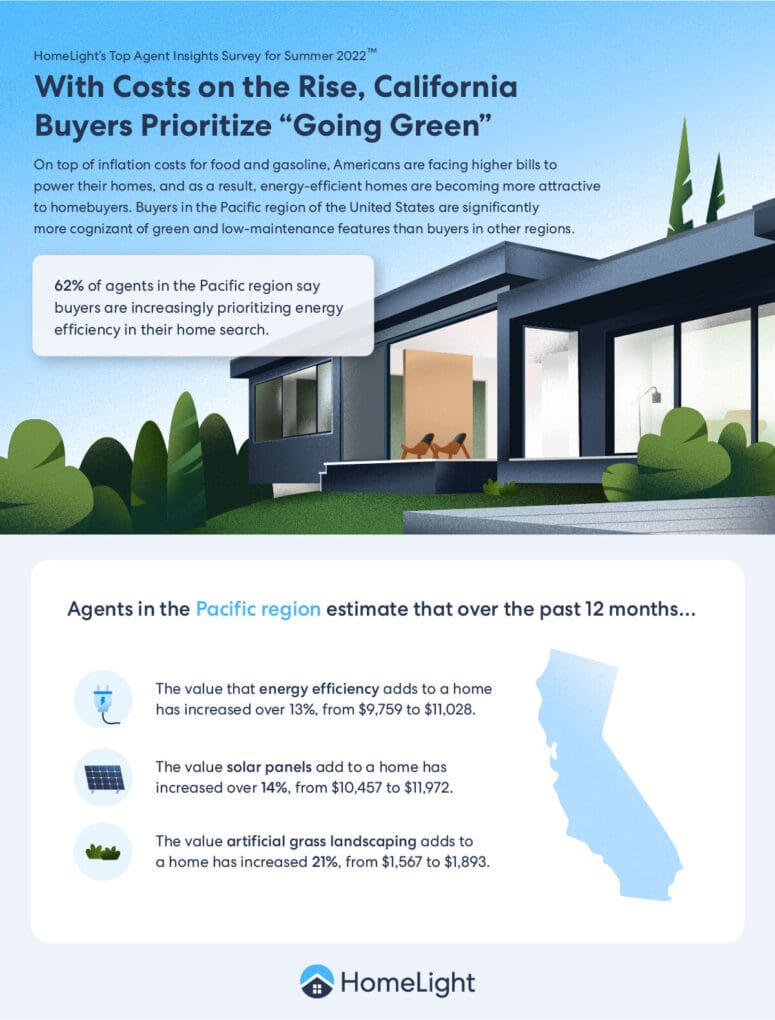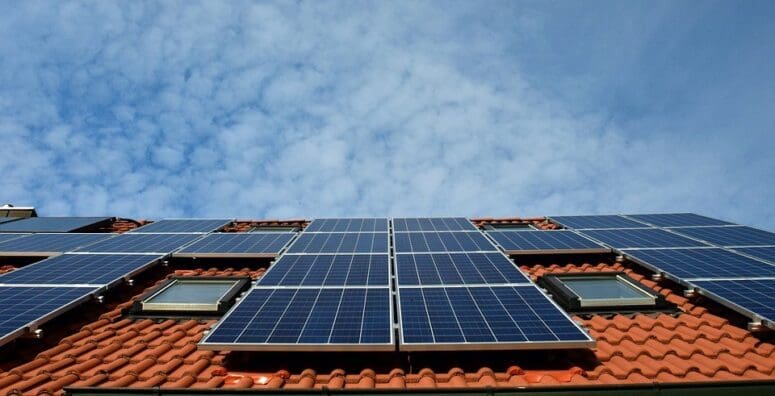California Is Making Bold Moves Toward Solar, Should The Rest of The Country Follow Suit?
- Published on
- 2 min read
-
 Caroline Feeney Former Executive EditorClose
Caroline Feeney Former Executive EditorClose Caroline Feeney Former Executive Editor
Caroline Feeney Former Executive EditorCaroline Feeney was previously HomeLight's Executive Editor / Director of Content. With 7 years of real estate reporting and editing experience, she previously managed content for Inman News and co-authored a book on real estate leadership. The Midwest native holds a master's from the Missouri School of Journalism and was formerly a real estate contributor for Forbes.
Turns out California sunshine is good for a lot more than a great tan and enviable Instagram beach posts. In fact, the Golden State is betting big on harnessing the strength of this giant sphere of hot plasma to better the planet and meet aggressive renewable energy goals by requiring that all new homes have solar power — either through rooftop panels or a shared solar-power system among homes, the first such regulation in the nation.
What’s the price tag on solar, you ask? Well, that’s the million-dollar question.
The New York Times reports the rule is expected to add an estimated $8,000 to $12,000 to the cost of a home (a bit hard to swallow in a state where the costs of real estate are reaching all-time highs). That equates to an extra $40 on your monthly 30-year mortgage payment. But according to the California Energy Commission, energy savings will make up for those dollar signs and then some — by shaving an approximate $80 off homeowners’ heat, AC and lighting bills.
 Could other states use this bold move as a blueprint for solar? It certainly wouldn’t be the first time we saw this type of copycat effect play out with California leading the way. Already 13 states use California’s emission standards and 28 follow its minimum renewable energy requirements, according to Time.
Could other states use this bold move as a blueprint for solar? It certainly wouldn’t be the first time we saw this type of copycat effect play out with California leading the way. Already 13 states use California’s emission standards and 28 follow its minimum renewable energy requirements, according to Time.
On the flip side, given the upfront cost to builders and buyers, some say this type of push for statewide renewable energy could be difficult to replicate elsewhere.
“This would be a very expensive way to expand renewables and would not be a cost effective practice that other states and countries could adopt to reduce their own greenhouse gas footprints,” wrote Severin Borenstein, an economics professor at the University of California, Berkeley, in a letter to the Energy Commission as obtained by MIT Technology Review.
In a previous post, HomeLight looked at solar panels and how they impact your property values. The short answer is: It’s complicated.
First, location matters. Solar can be a valuable investment for future buyers when it’s been recently installed and when you’re living in a place where it’s becoming the norm (and you can count on many a sunny day). With California’s new requirements, there’s no question that solar powered-homes will become not just common but standard for the Golden State, which could mitigate some of the difficult dynamics solar can bring to the table during a home sale.
As Ilyce R. Glink and Samuel J. Tamkin of the Washington Post point out: “If lots of homes in your area have solar panels, and buyers are learning to expect them, adding them might give you something extra to promote your home when it comes time to sell. However, if few homes have solar panels and buyers tend not to pay for the investment, you might not get back the money you put into the panels.”
In addition, under California’s new rules, buyers can choose to own the panels off the bat, and pay for them as part of their home purchase, or they can lease them. That decision could make a big difference for owners of these new solar-equipped homes down the line when it’s time to sell, as the remaining balance of the leased panels will be absorbed by the new buyers.
Other factors to weigh include the age of the solar package, the warranty (which buyers will, of course, ask about), and the added difficulty in getting a loan on a home with solar panels, all of which can muddy the value of adding solar to your house.
Yet, at least in California, you might be able to make a special case for solar in your future listing description.
As described by Lynn Jurich, co-founder and chief executive of solar installation company Sunrun, in an interview with the New York Times, you just can’t beat “the real American sense of freedom of producing electricity on my rooftop.”
Article Image Source: (ulleo/ Pixabay)
